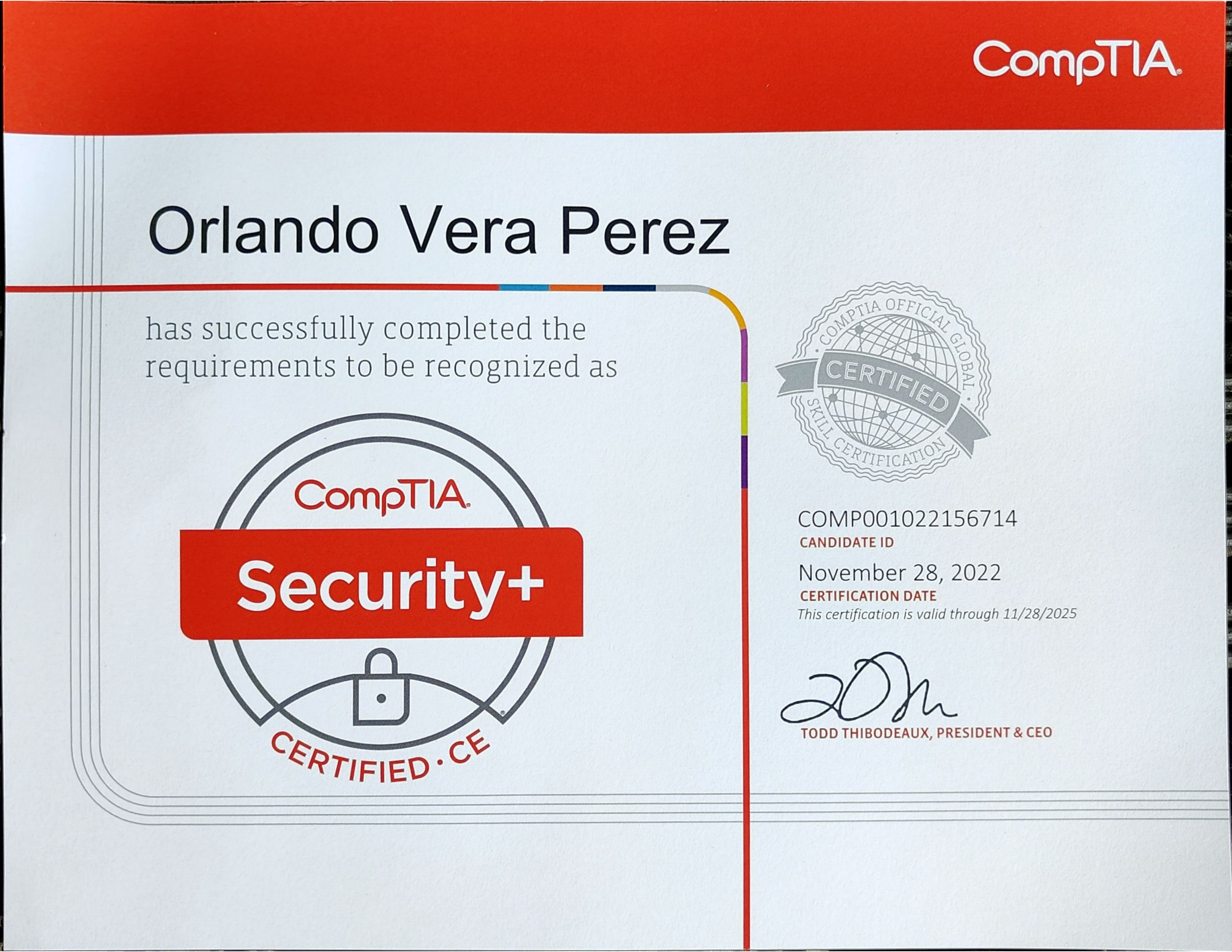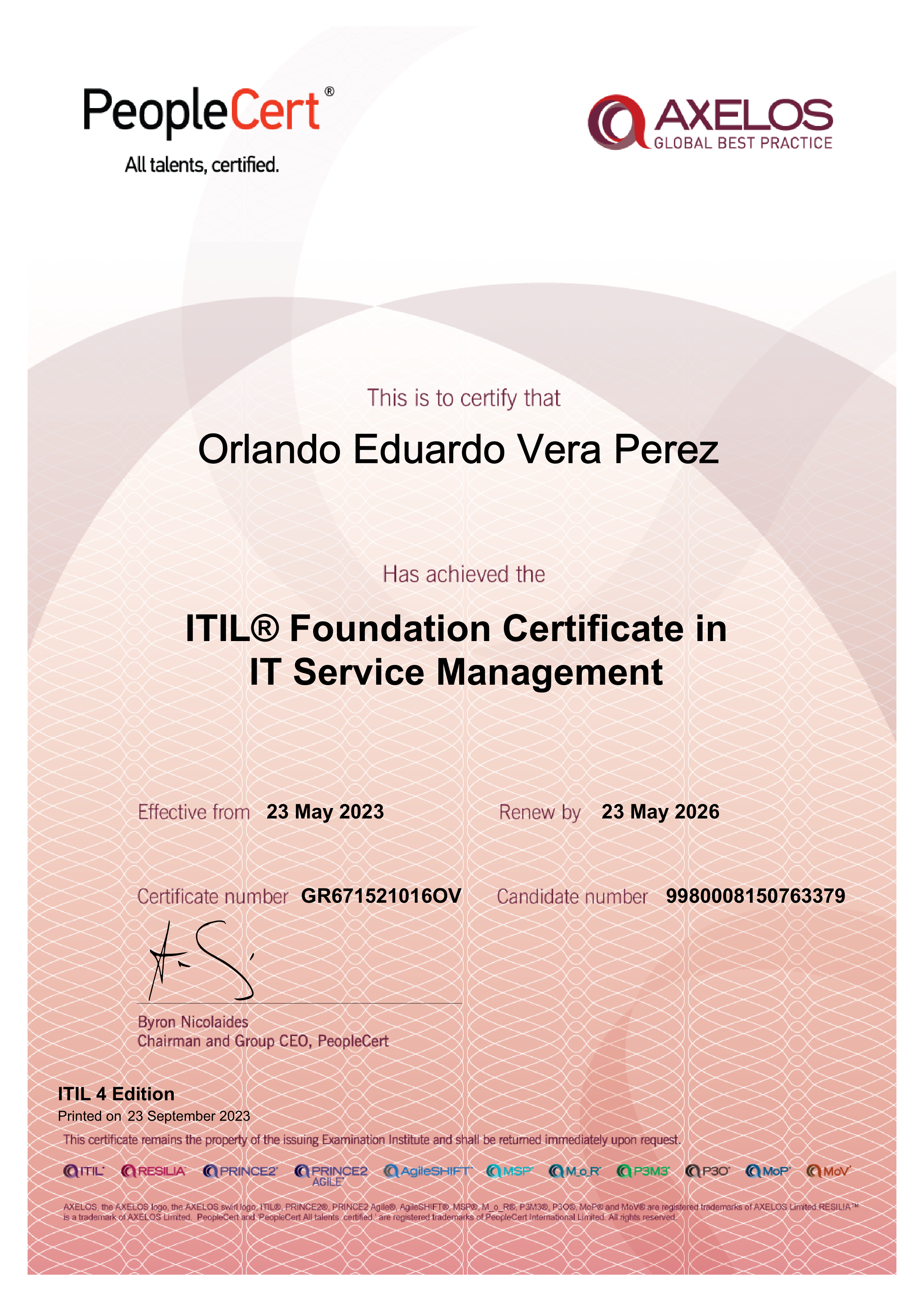Skills & Qualifications
Certifications
CompTIA Security+

After studying and getting my Security+ I felt more confident in my proficiency in its covered topics such as network security, compliance and operational security, threats and vulnerabilities, application and host security, access control, identity management, and cryptography. This certification validated the foundational skills for an IT security role, including installing and configuring systems to secure applications, networks, and devices. Furthermore, I particularly enjoyed the knowledge I gained about performing threat analysis and responding with appropriate mitigation techniques. It should be noted, this served as the perfect introduction to operating with an awareness of applicable policies, laws, and regulations which had been very abstract topics in my previous research. In short, having this industry-recognized certification illustrates advanced technical skills and knowledge relevant to working in cybersecurity and as a security-focused developer.
ITIL 4 Foundation

Studying for the ITIL 4 Foundations exam gave me valuable understanding of best practices for IT service management and how that may benefit a business. Despite this being an area of study I had not ventured into before, I greatly enjoyed learning the key concepts and principles of ITIL. Earning this certification demonstrates my foundation in the ITIL framework that I can build upon with further certifications. More importantly, it shows that I can put my ITIL knowledge to work right away, helping IT teams improve their processes and policies to enable top-notch service management. Lastly, I believe it is worth mentioning that this certification proves my dedication to have a wholistic understanding of my industry to make sure I am an indispensable asset to any organization.
Education
Bachelor of Science in Computer Science (BSCS)

Through WGU's online BS Computer Science program, I gained core computer science knowledge and practical software development skills that have provided an excellent foundation for my cybersecurity and software engineering future. The curriculum covers critical areas like programming, algorithms, operating systems, and databases, providing me with the technical expertise to both develop secure systems and identify vulnerabilities in existing ones. In addition, the competency-based format enabled me to accelerate my learning in a manner that had less barriers than what I experienced accelerating through my AA degree at a regular Brick & Mortar institution. The well-rounded theoretical and practical education has given me the problem-solving abilities and continuous learning capabilities needed to keep up with the ever-evolving technology landscape. Altogether, I believe what I learned through WGU has allowed me to protect systems through risk analysis and threat detection in my current role as a network manager as well as approach my personal projects from a security focused and well-rounded developer mindset.
Skills
Networking
I have developed hands-on networking skills through academic, personal, and professional experiences. At home, I set up and manage my own server that hosts a DNS container to route traffic for all my devices. It's implementation involved configuring a static IP address on my router for the Raspberry Pi that runs a DNS server through a docker container, allowing me to control my home network's outbound traffic. Additionally, in my role as a network manager, I troubleshoot a range of connectivity issues for various devices including computers, printers, iPads and more. Whether solving complex networking problems or designing the network architecture for my home server, I have gained valuable real-world networking expertise that I can leverage in a cybersecurity or software development position. My academic training combined with the practical network administration skills I use daily enable me to understand and implement robust, secure network solutions.
Linux
Through self-guided learning and hands-on experience, I have developed proficiency in Linux operating systems. My initial forays into Linux began by working through CTF challenges on TryHackMe using distributions like Arch Linux, Black Arch, and Kali Linux. Immersing myself in these distros gave me deep familiarity with Linux command line tools, which I now prefer over GUIs for many tasks. To leverage the flexibility of both Windows and Linux, I use WSL2 as my primary way to interact with Linux. WSL2 provides faster performance than traditional virtual machine hypervisors, giving me seamless access to Linux without dual booting my machine. Whether spinning up temporary distros to analyze malware, developing software, or taking on CTF challenges, I rely on Linux daily. My self-motivated learning paired with practical usage in security and development contexts make me highly capable with Linux administration, scripting, and tooling.
Programming
Due to having a Computer Science degree, programming has been central to my academic and professional development. I began programming due to an interest in quantum computing, which led me to find cybersecurity and desire to pursue a CS degree that could provide me in-depth knowledge of core concepts found in modern technologies. Through my coursework, I gained proficiency in languages like Python, Java, C++ and web development markup languages. While my projects have focused more on traditional software engineering, I'm intensely interested in using my programming skills for cybersecurity. In my free time, I've created small security tools and am now learning Go - which I find uniquely suited for building powerful hacking/defense tools given its low-level control and versatility. Most recently, I used Go to build this portfolio site, and plan to use it for many future cyber projects. Though my programming background is currently more traditional CS than hardcore infosec, I have the core languages, problem-solving ability, and passion for development to build impactful security tools. Given my existing knowledge and hands-on experience turning concepts into code, I'm excited to grow as a programmer in the cybersecurity space.